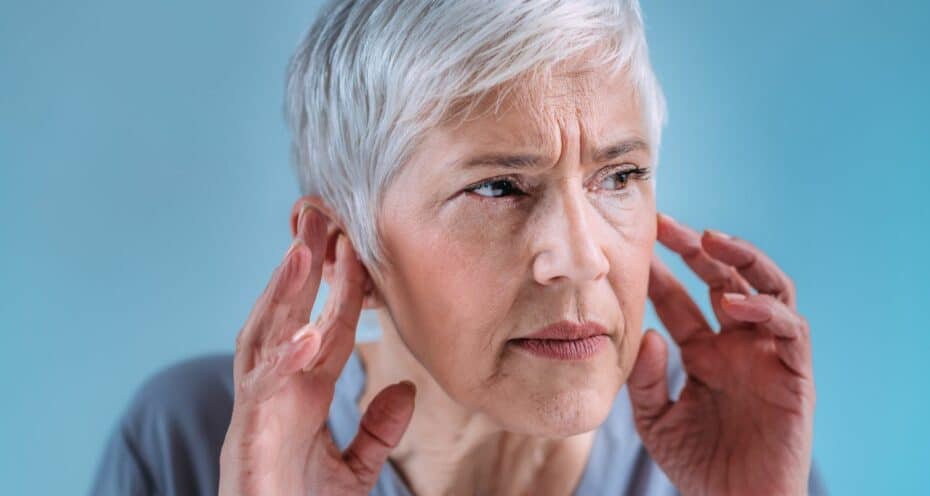According to the WHO website, a person is said to have hearing loss if they are not able to hear as well as someone with normal hearing, meaning hearing thresholds of 20 dB or better in both ears. This may range from mild to profound. While there are many causes and can affect someone at any age, hearing loss is most common in people older than 60. Around 16% of U.S. adults have hearing loss, making it more common than diabetes or cancer. Even though most forms of hearing loss are incurable, it is highly treatable. Learning more is the first step in understanding how it impacts you or your loved one—and what you can do about it.
The symptoms of hearing loss
The symptoms of hearing loss vary depending on the type, cause and degree. Most people with hearing loss have experienced some or all of the following:
- Struggling to understand conversations
- Being able to hear but not always understand
- Feeling that the TV or radio isn’t loud enough
- Needing people to repeat themselves often
- Rarely or never hear birds or other high pitch sounds
- Avoiding of social situations that you formerly enjoyed
- Listening fatigue
- Restaurants, gatherings, meetings etc cause extra difficulty in understanding and hearing
- Tinnitus, defined as a ringing and/or buzzing in the ears
The three main types of hearing loss:
- Sensorineural hearing loss: This is the most common type of hearing loss especially in adults. It is caused when there is damage to the tiny hair-like cells in the inner ear or the auditory nerve known as cilia. Sensorineural hearing loss can cause difficulty in understanding sound or speech even though it is heard.
- Conductive hearing loss: Caused by a mechanical problem in the outer or middle ear or an obstruction in the ear canal (often earwax is the culprit), this is the most treatable form of hearing loss. While It can be permanent, more often it can be medically treated.
- Mixed hearing loss: This is when a person has a combination of sensorineural and conductive hearing loss.
Risk factors associated with hearing loss
There are many common risk factors, but there are some surprising ones as well. Some of the more common risk factors include:
- exposure to excessive noise over time
- History of smoking
- a family history of hearing loss
- Having heart disease or diabetes
Some less common risks include:
- some medications
- Trauma or injury to the head
- Illnesses such as Meniere’s disease, otosclerosis or autoimmune diseases including thyroid disease
- several less common medical conditions
Tests for hearing loss
Figuring out the cause of your hearing loss is very important to determine the correct treatment. If you find yourself experiencing hearing loss, your general practitioner will refer you to a qualified hearing healthcare professional, such as an audiologist or hearing instrument specialist.
Hearing tests are simple, painless, and widely available. There are several types of hearing tests that look at the different parts of the ear. Your test should also include a visual exam of your ear canals and eardrum to determine if there is an obstruction.
Hearing loss treatments
While mixed or sensorineural hearing loss is not curable, it is almost always treatable. The three most common treatments for hearing loss are
- hearing aids
- cochlear implants
- bone-anchored hearing systems
It will take a team effort between you and your hearing care professional to find the best treatment for you. Together you will need to consider many factors including:
- Type of hearing loss
- Severity of hearing loss
- Your lifestyle
- Your age and your communication needs
- Your cosmetic preferences
- Your budget
In some cases, hearing loss can be treated medically or surgically especially in conductive hearing loss, but most often maintenance and treatment are the best options available. Luckily hearing aids, the most common treatment for hearing loss, are widely available in a range of styles, colors, sizes, technology levels, and price points. The studies are pointing to the fact that hearing aids do more than just help you hear—hearing aids can make you healthier overall.
Untreated hearing loss has been shown to have serious health implications. Research indicates that hearing loss has been linked to social isolation, dementia, cardiovascular disease, depression, and falls. Address your hearing as soon as possible to help you improve your overall wellness and quality of life. Schedule a hearing exam with us today.

